QuestionHello Jessica. I have two resident cats, age 11 female and age 8 male, both fixed. Have a stray about a year old, recently spayed female, that I have taken into my house after she showed up on my deck. She is a tortieshell with beautiful markings and very loving towards me. Not so with the other two cats. She was fixed about three weeks ago but still does not act very nice towards the other two cats. I had a problem with the 11 yr old being afraid of the stray to the point of not using her litter box. I took her to the vet, who ruled out anything medically, decided it was psychological. I have given the 11 yr old run of the upstairs (which she usually is anyway) and the 8 yr old and stray run of the downstairs and basement. It has been one week. I am really nervous about reintroducing the stray to the 11 yr old because of the previous problems. I read article after article about introducing new cats but they hate each other. The stray has a habit of trying to hog the litter box (I have three boxes - one upstairs and two downstairs) and the food and whenever the stray sees the male cat, she chases after him. I have a Feliway diffuser downstairs as well as using flower essence drops (New Beginnings) to see if this helps. I don't want to get rid of the stray but what else can I do to help them get along? My vet suggests prozac for the stray for a few weeks. I have no idea what kind of life the stray had outside but could this be part of the problem? I'm at my wits end.
AnswerHi Denise,
I recommend waiting a couple more weeks before trying to reintroduce, to let things settle down, and I would have no problem starting the tortie on the Prozac in the meantime. It will take a couple of weeks for that to really kick in. I've had cats benefit from this a lot, but they required for a few months. I also feel that the spay is going to take just a little more time to have its full affect on her personality, and I think you may see a little more benefit from that in the next couple of weeks based on my experience. I'm glad you're using the Feliway - I think this is a great product, and many people have good results with flower essences.
You may have read up about all this already, but in the meantime, I would suggest that you start trying to make some positive associations between the cats. If you don't have them completely separated, limit the tortie to one room for now, and start feeding the cats special meals with her directly on one side of the door, and the other two on the other side. They'll all be aware of one another's presence through shadows and sounds, but the threat of a confrontation won't be there. My fosters become very curious about one another this way, and it finally gets to a point where I can't keep them apart for the life of me.
Also, try using scent transference to introduce them more indirectly. Use a towel to rub one cat's cheeks, then present it to the tortie to sniff. Then do the same with the tortie for your resident cats to smell. You can also let the tortie wander the upstairs or downstairs while you put the others in her room to allow them all to explore each other's things.
In a couple weeks, when things have calmed down, try introducing them again, but only for a few minutes. If the tortie gives chase, isolate her. The cats need to be desensitized to one another slowly. They can become overstimulated easily and should only be exposed to each other in small doses at first. Even if visits go well, start with 15 minutes at first, and then put the tortie back in her room.
This is the best way to ensure no long-standing trust issues become a problem. Adult cat introductions can take a long time. Each stray can react differently to cats depending on her history with cats outdoors and her genetic makeup (just like indoor cats). If she had been part of a neighborhood with lots of cats outside, she would likely be much more tolerant of your cats inside. It's also been suggested as of late that coat patterns and behavior may be genetically linked, and that torties may be a bit more full of fire than, say, orange tabbies. However, I have torties that get along with other cats perfectly fine, so I know this is only a fraction of the equation.
Best of luck!
Jessica

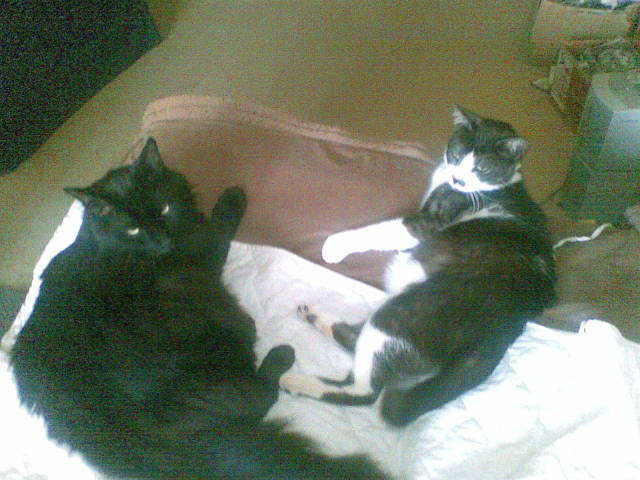 3x week visiting cat
Question
banjo and Joppy
Hi thanks for maybe bei
3x week visiting cat
Question
banjo and Joppy
Hi thanks for maybe bei
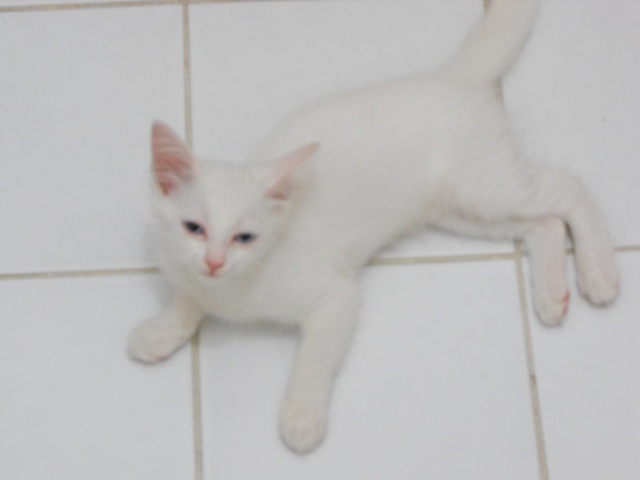 Kitten breed
Question
Minnoo
Dear Sir,
I brought home a female kitte
Kitten breed
Question
Minnoo
Dear Sir,
I brought home a female kitte
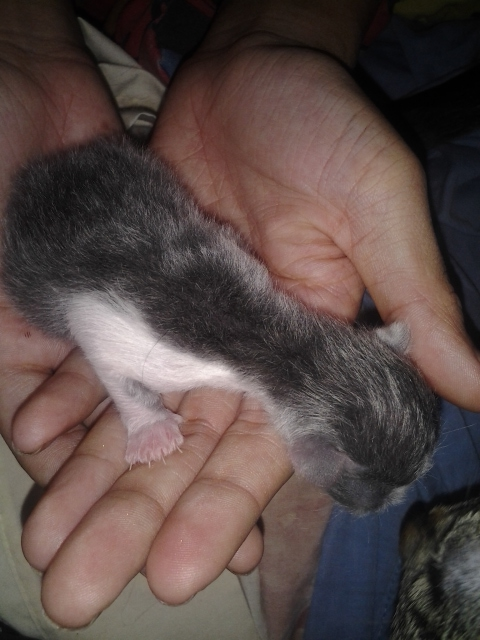 Help with Two Female cats Please!!!
Question
the kitten Cats
Hello, I have two
Help with Two Female cats Please!!!
Question
the kitten Cats
Hello, I have two
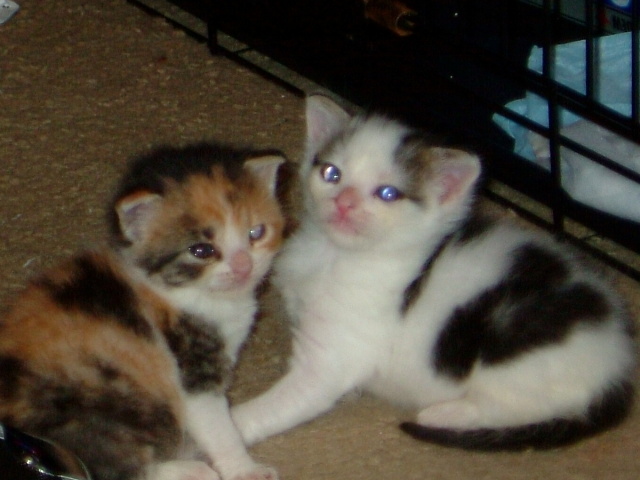 2 Ferals
Question
Sister and Brother at
Hello!
Im so glad I fo
2 Ferals
Question
Sister and Brother at
Hello!
Im so glad I fo
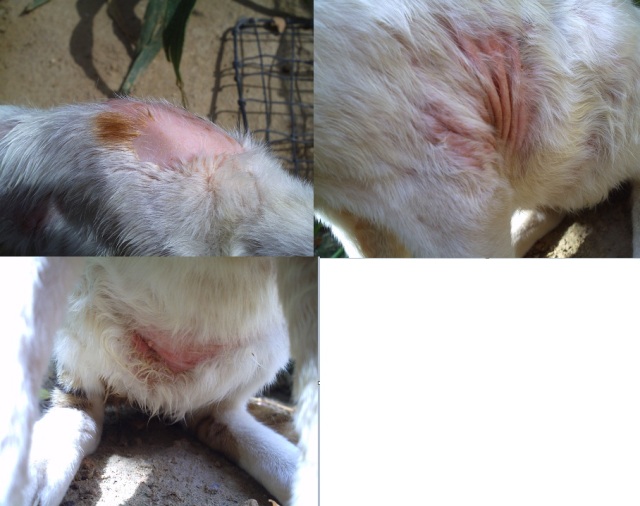 wounded cat hair loss
Question
wounded cat
my one year old cat was bitten by
wounded cat hair loss
Question
wounded cat
my one year old cat was bitten by